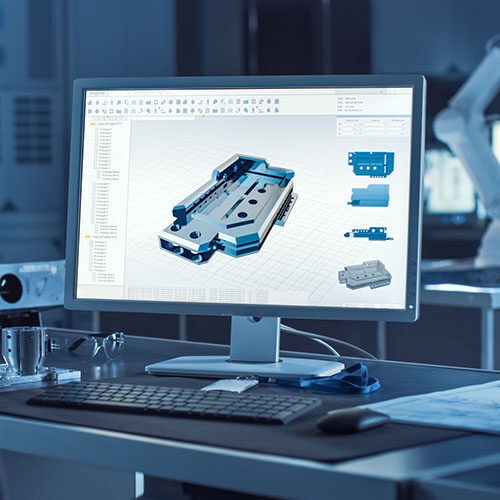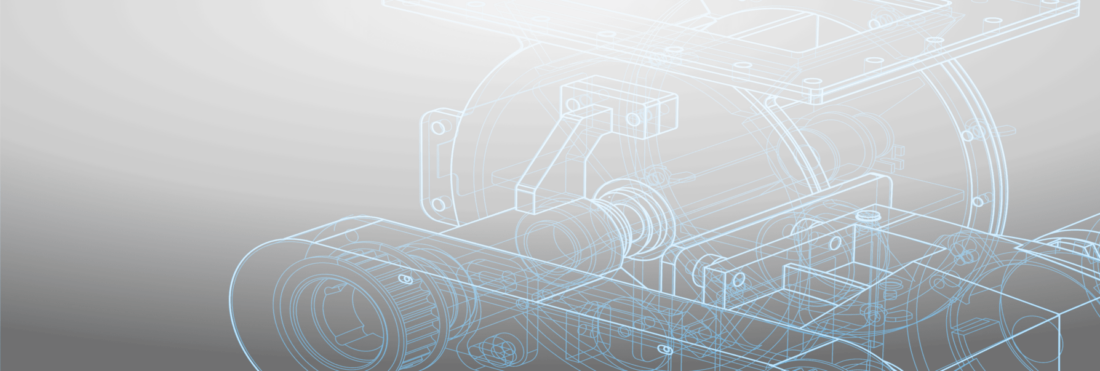
Deliver on time, every time. You know it’s the number one thing you need to do to keep customers happy and remain competitive in today’s marketplace. In fact, many manufacturers are able to achieve a 98% on-time delivery rate — and with some smart changes to how you run your shop, you can achieve that rate too.
Unfortunately, it’s not one single thing, or one simple fix, that will help you improve your delivery rate and get every order out the door on time. I don’t need to tell you that custom manufacturing is complicated — with so many moving pieces that need to go in the exact right order, at the exact right time to get a job out the door on schedule — sometimes you probably feel like you just have your fingers crossed that things will get done right and on time. To truly improve your on-time order delivery rate you need to be able to keep on top of every single aspect of your operation.
But thankfully there is a system that can help you manage your operation better, and help you get more orders out the door on time. Manufacturing specific ERP systems are built just for custom manufacturers like you, and let you oversee your entire operation. They help you better manage all of the processes, decisions, and tasks that it takes for you to get a job done.
An ERP will help you run your entire operation more smoothly, letting you become more streamlined, more efficient, and get more jobs out the door on time. To see how ERPs can help let’s look at a two of the most common problems that can be holding up your delivery:
- Inventory Management
- Scheduling
Both of these are some of the most complicated tasks that you need to master to get a job done on time.
Inventory Management
As a custom manufacturer you are dealing with multiple suppliers, long lead items, and complex BOMs on every job you do. Having the right parts on hand at the right time is a major issue that you need to constantly be on top of. Doing this manually, by working with multiple spreadsheets, can make this job truly a nightmare.
But with an ERP system much of your inventory management can be done automatically by the system. A good custom manufacturing ERP system will connect with your CAD system, letting you automatically generate a BOM. Your engineering department can then review the BOM to make sure that everything is in order, and can be passed on to your procurement and production departments. This can help you with the ordering of long lead items, as you will know earlier in the design process what parts are needed for a specific job. An ERP can also cross reference the BOM list with your inventory system so you will know in an instant what parts you already have on hand, and what needs to be ordered. The system will also be able to order parts automatically, or send a reminder to your Purchasing Manager that an order needs to be placed.
An ERP can also help you with you keep better tabs on the inventory you have in stock and allocate materials to a certain job, ensuring you always know what your inventory levels need to be. A manufacturing ERP will also allow you to do a better job of managing all of your vendors. You’ll be able to make pricing inquiries with multiple vendors for multiple items and combine purchasing lists for multiple orders to increase efficiency.
Scheduling
Scheduling is another area that can be problematic for custom manufacturers. Both labor and machine schedules need to be optimized to get a job done efficiently and quickly. A bottleneck somewhere in your shop can have a domino effect — and cause you to get behind and deliver jobs late. Not only can an ERP system do the heavy lifting by creating schedules for you, eliminating the need for multiple spreadsheets and whiteboards, but they also give you data in real-time, helping you to identify where there is a problem in your shop, such as where a machine is sitting idle, or a workstation is creating a bottleneck. An ERP will alert you to the issue and let you resolve it quickly, so you can reconfigure your workflow and get jobs done on time.
An ERP helps you clarify and structure the instructions for each task on a job, and allows you to execute tasks and jobs according to an established plan. With an ERP you will be able to increase throughput by prioritizing workloads against historical capacities. And you will be able to organize your projects based on your shop’s actual capacity, using the real-time data an ERP provides, making scheduling easier, and your shop more efficient.
A manufacturing specific ERP is an essential tool in getting you to deliver on time, every time. We looked at just two ways that an ERP will help you get jobs out the door faster by connecting your shop, allowing for the easy sharing of information between departments, using real-time data, and automating processes. With the help of an ERP system that connects and controls not just your inventory management and scheduling, but every aspect of your shop, you will be able to stay on top of your entire operation, instead of feeling like you are always playing catch up. Soon you will have an enviable delivery rate — winning you repeat business and new customers.
Get your eBook Scared to implement a new ERP?
"*" indicates required fields



